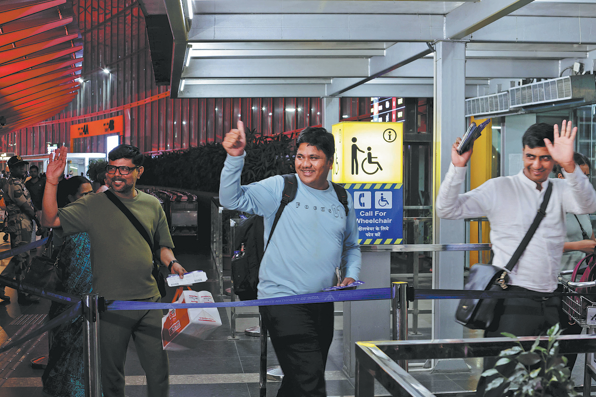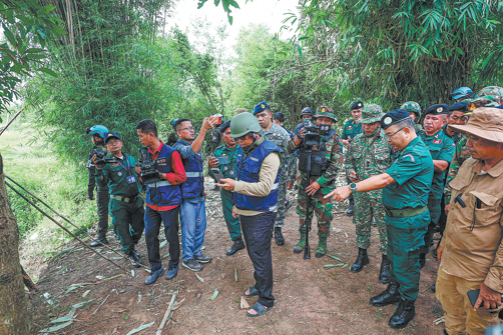'Comfort women' add their voices to history's witness list





In a recent letter to the American Historical Association, more than a dozen distinguished professors at schools like Harvard, Princeton and Boston College, expressed their "dismay at recent attempts by the Japanese government to suppress statements in history textbooks both in Japan and elsewhere about the euphemistically named 'comfort women' who suffered under a brutal system of sexual exploitation in the service of the Japanese imperial army during World War II."
The letter accused the administration of Japanese Prime Minister Shinzo Abe of questioning the "established history" of the comfort women system and trying to eliminate references to it in school textbooks.
Try as they may, books like one coming out from Oxford Press next month will keep the war crime etched into our collective conscience for years to come.
Chinese Comfort Women: Testimonies from Japan's Imperial Sex Slaves by Peipei Qiu with Su Zhiliang and Chen Lifei features personal narratives of 12 Chinese women who were forced into sexual slavery when Japanese imperial forces occupied their hometowns during the war. And it's pretty clear that they're not making this stuff up.
More than 10 years in the making, the book was a vast group effort that included tracking down and interviewing survivors across China's rural areas, which is where most of the comfort survivors lived, places where "traditional attitudes toward chastity remain deeply rooted and contribute significantly to the embarrassment and pain experienced in the telling," the authors write.
In Yunnan province, for example, where there were a large number of military comfort stations, few survivors were willing to tell their stories. "The psychological trauma and fear of discrimination continue to haunt these survivors," they write.
Each woman who agreed to talk was asked the same set of questions, but in a flexible, informal fashion, sensitive to the physical and emotional demeanor of the woman: What was her family background before the Japanese invasion? During the war, how did she become a comfort woman? What did comfort stations look like? How was she treated? How did her comfort station experience end? What is her current marital situation? What was her life like currently? Has she experienced any social discrimination because of it?
The thorough fieldwork yielded 12 stories - translated with "every effort to be faithful to the survivors' words" - that are at once riveting and heartrending.
Zhou Fenying, for one, lived in Rugao, a small county 280 miles east of Nanjing in the Yangtze River Delta, where "Japanese soldiers raped women indiscriminately, including young girls of eight or nine and 70-year-old women."
Zhou Fenying had married Jincheng in 1936, when he was 24 and she was 19. "People said that I was an exceptionally pretty girl," Zhou said, now 90, blind but dressed neatly and wearing a straw hat to protect her face from the sun. Local people told the interviewers that, indeed, Zhou Fenying had been a famous beauty in the area.
Two years after Zhou and Jincheng married, the Japanese occupied Rugao. "It was in the spring of 1938 and that day was my cousin Wu Qun's birthday. She was about my age and also good-looking. My husband was away from home working in the fields. We heard that the Japanese troops accompanied by local traitors had come to kidnap girls. All the women in the village ran desperately trying to escape. My cousin and I ran for our lives."
They crossed a little river and hid behind a millstone in a villager's courtyard, but the Japanese soldiers found them, tied them up with ropes, loaded them into a wheelbarrow and forced villagers to push them to the town of Baipu. "The ropes and the jolting of the wheelbarrow hurt our bodies like hell the whole way," she said. (They later learned that the Japanese had been looking for good-looking girls and that they had been targeted).
They were unloaded at the Zhongxing Hotel, which the owner had abandoned when the Japanese arrived. There were about 20 girls already there and a nearby Japanese barracks with about 50 soldiers. Each of the girls was given a number printed in red on a square of cloth. "People said that the numbers were given based on the looks of the girls," she said. "I was made No 1."
She was so frightened the first time a Japanese soldier came to her that she could not stop crying, which made him angry. "He pushed his bayonet against my chest, snarling in a low voice. I thought he was going to kill me and I almost passed out. The Japanese soldier then raped me."
One year after Zhou Fenying related her experiences to the authors, she died on July 6, 2008, at her home in Rugaocounty. Her story and so many others like it, thankfully, still bear witnesses.
Contact the writer at chrisdavis@chinadailyusa.com.





























